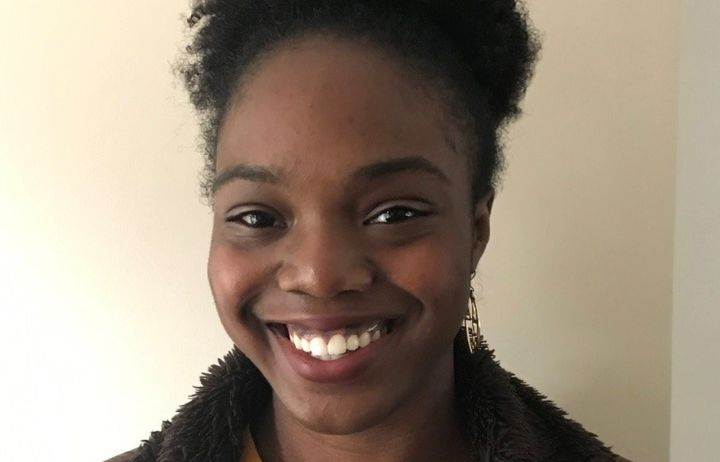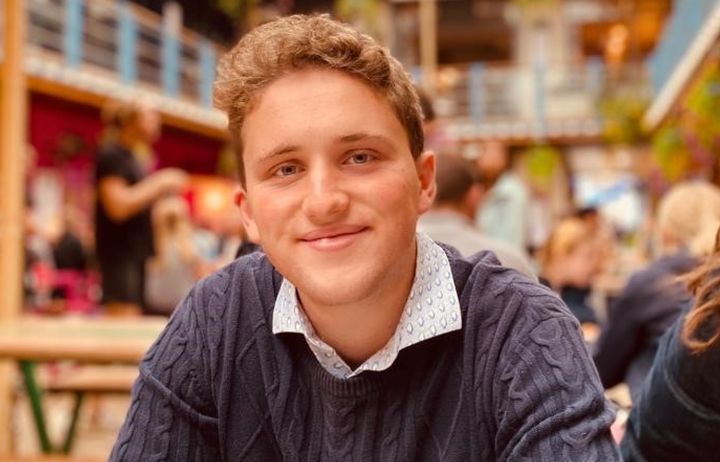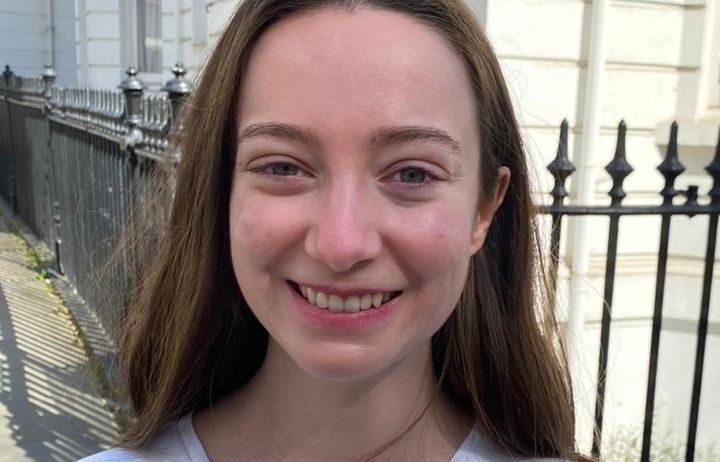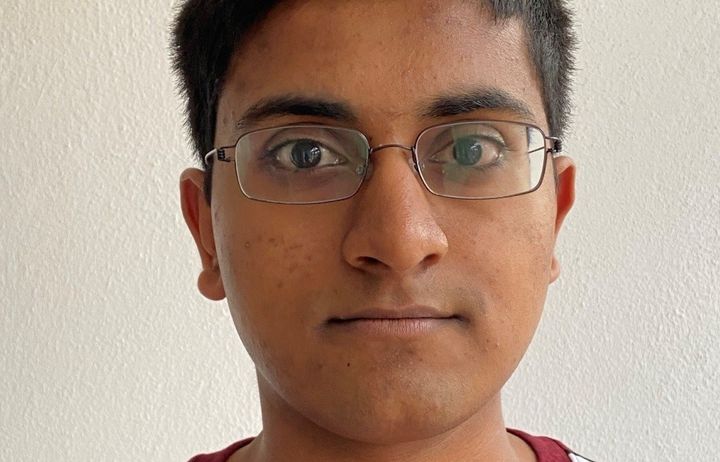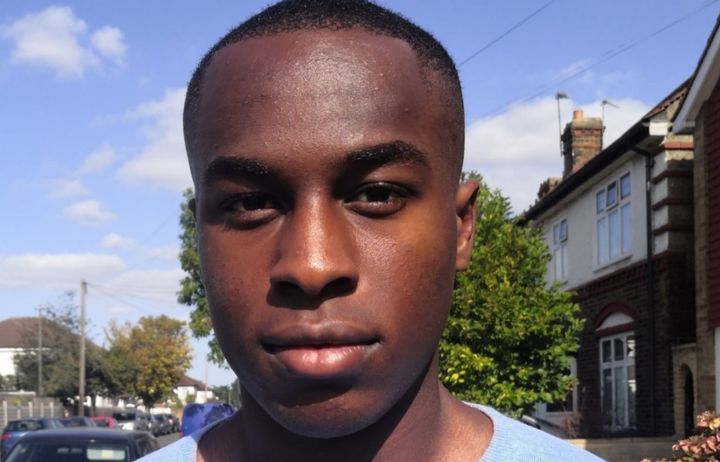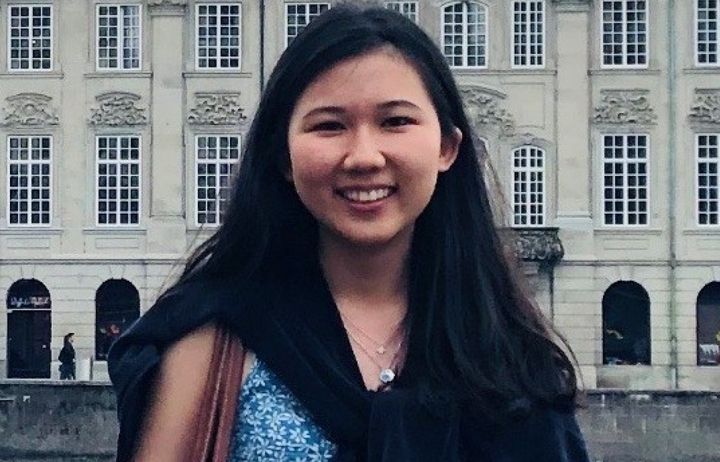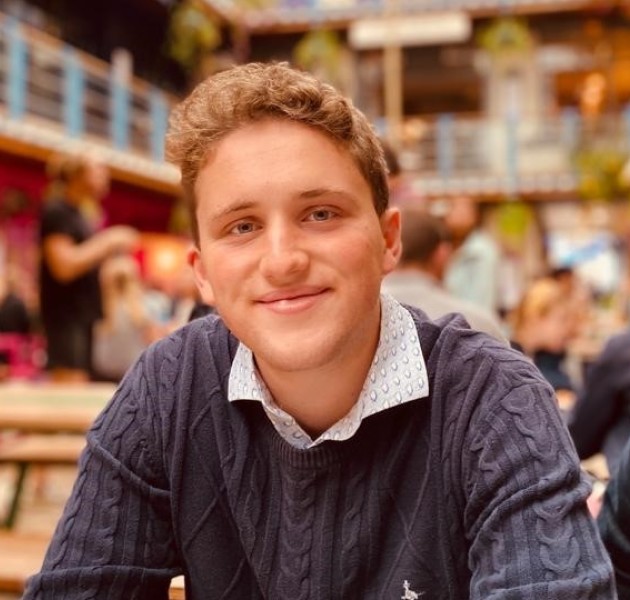 Nationality: British
Nationality: British
Degree Programme: MSci Physics with Theoretical Physics
Year of Programme: Year 1
What A-levels did you take? Maths, Further Maths, Physics, Chemistry
Studying physics
Tell us where your passion for physics started
When I was about eight my family and I visited the Kennedy Space Centre in Florida. I was truly blown away by the space craft and the technology involved in the US moon shot, in particular the mighty Saturn V rocket. It just seemed so remarkable that those rockets actually took humans to the moon and returned them safely. Later that day, I was lucky enough to meet Colonel Al Worden and hear him talk in detail about his mission to the moon aboard Apollo 15. He was incredibly inspirational and from that day I’ve always had a passion for space and physics!
Why did you decide to study physics at Imperial?
Imperial has a much-deserved reputation worldwide, especially for physics. The lecturers and researchers in the Department work on ground-breaking research and projects with the likes of NASA and this played a huge role in my decision to come to Imperial. Imperial is also located in central London, right next to some of the world’s greatest museums, so has lots going on around it which is another great benefit.
What aspects of the programme do you enjoy the most?
I’ve loved everything so far; labs have been fun, especially as these have been one of our only in-person events this year due to lockdown restrictions. I’ve also really enjoyed our live seminars and tutorials where we can meet and speak to our lecturers and tutors about their fields of research. One particularly enjoyable aspect of the programme is the ‘research frontiers’, where members of the Department deliver a presentation about the research they’ve been doing.
Which has been your favourite module so far and why?
I’ve really enjoyed the VFEM (Vector Field, Electricity and Magnetism) module. It has been fascinating to learn about Maxwell’s equations and how to actually apply them. It’s incredible to see how much of the physics we know and can use today was discovered and derived.
What has been the most challenging part of the programme so far?
The most challenging part of the programme so far has been not being able to meet our cohort or lecturers in person due to the pandemic.
Is there anything about the Department of Physics, or your programme, that has surprised or impressed you?
I have been very impressed by the amount of involvement our Physics Department has within the wider world of physics. It was very exciting to learn about the large role Imperial plays in many well-known and important projects. The best part of this is that many of the people working on these projects will be your lecturers or tutors.
One example is that my tutor was recently responsible for the discovery of phosphine within the atmosphere of Venus (a possible sign of life). Another example is that one of my lecturers is the principal investigator for the magnetometer for the Solar Orbiter satellite mission. These are just two examples of the many exciting projects that members of our Department are involved in.
How would you describe the physics community at Imperial?
Everyone is very supportive and friendly. There is a great academic culture within the community where people genuinely try to help further each other’s understanding of physics.
What clubs, societies or other activities are you involved in at Imperial?
We have a multitude of clubs and societies to choose from that students can get involved with, ranging from things like Ice Hockey all the way to clubs such as VegSoc (Vegetarian Society).
Currently, I do basketball and dodgeball as my main sports. I am also part of many other societies, including choir. I really enjoy my societies; the sports ones are particularly fun as you often get to do those in the Ethos centre (the main sports facility right by the Campus). All societies are great for meeting new people, everyone is very welcoming and there is certainly lots of fun to be had.
Career
What are your future career goals and how has Imperial helped you realise them?
Imperial has a great Careers Service. No matter what industry you ultimately want to end up in, they can help to expand your horizons and open up opportunities you may have never thought of. One thing that is particularly useful is how easy they make it to search for potential work experience in the field you’re interested in.
What advice would you give to someone thinking about applying for your programme?
Physics is a great degree for a multitude of careers. If you know what career direction you want to take, continue to look into it and research, but always ensure you keep your eyes open to new experiences and opportunities.
Before you go…
How do you find living in London?
London is arguably one of the greatest cities in the world so it’s an incredible city to study in. I’m in the South Kensington halls where you have: Hyde Park, Exhibition Road, Kensington High Street, and many other places literally right on your doorstep. There’s so much going on, there’s never a dull moment!
When you’re not studying, what do you enjoy doing?
There’s lots of fun things to do during your free time. You have all of the museums to visit on Exhibition Road, you can have a nice walk/cycle with friends around Hyde Park, you can also go out into London and explore. If you join any societies you can also participate in their many gatherings and events, for example, we had an intramural Basketball league last term which was great fun!
Who inspires you, inside or outside of Imperial, and why?
The Physics Department is very inspirational. Every member of staff always has something interesting to say, especially when it comes to their area of research and all the incredible projects they are working on. For instance, the Head of the Physics Department, Professor Michele Dougherty, gave a talk on one of the first days of term about the role she played in Nasa’s Cassini Mission to Saturn. It was so inspirational to see how large of a role Imperial plays in many major missions and projects!
Meet more of our physics students
Contact details
Department of Physics
306 Blackett Laboratory
South Kensington Campus
London, SW7 2AZ
Tel: +44 (0)20 7594 7510
ph.admissions@imperial.ac.uk
Why Imperial?
Find out more about Imperial College London's UK and world rankings in undergraduate courses.
